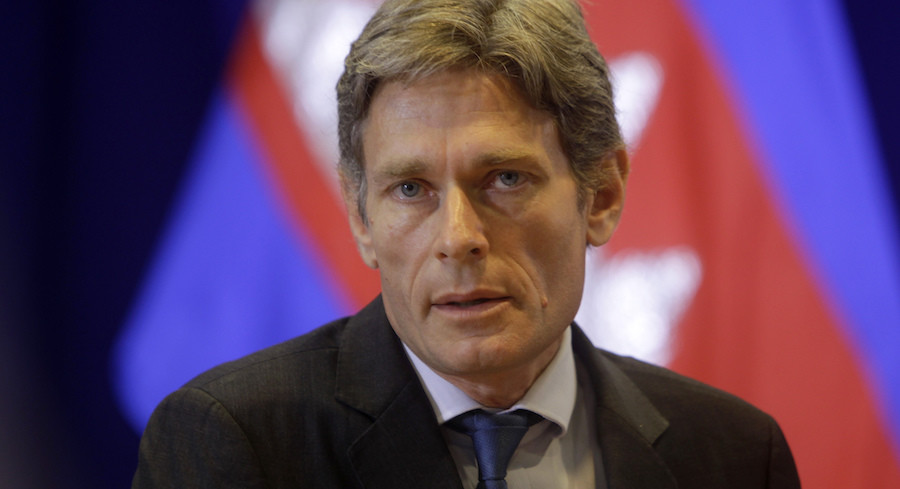Pulitzer prize winner James Risen has a piece out in The Intercept detailing how the truth of his rational, fact-based 2015 article in the New York Times about Biden and Ukraine “has been lost in a swamp of right-wing opposition research, White House lies, and bizarre follow-up stories.” He then goes on to offer some useful recollections about the situation and context, starting with the situation in the fall of that year, when then-U.S. Ambassador to Ukraine Geoffrey Pyatt gave a speech in which he attacked the Ukrainian prosecutor general’s office for failing to cooperate with the British investigation the previous year. In his speech — which I quoted in my story — Pyatt mentioned Burisma’s owner by name.,
“In the case of former Ecology Minister Mykola Zlochevsky, the U.K. authorities had seized $23 million in illicit assets that belonged to the Ukrainian people,” Pyatt said. Officials at the prosecutor general’s office, he added, were asked by the United Kingdom “to send documents supporting the seizure. Instead they sent letters to Zlochevsky’s attorneys attesting that there was no case against him. As a result, the money was freed by the U.K. court, and shortly thereafter the money was moved to Cyprus.”
He goes on to describe the situation when Biden went to the Ukraine in December. He notes that Biden arrived in Ukraine in December 2015 to press for more aggressive anti-corruption efforts by the government, it was clear at the time that Hunter Biden’s role with Burisma “made his father’s demands, however well-intentioned, appear politically awkward and hypocritical.” He points out how experts at the time felt that Hunter Biden’s position undermined the government’s anti-corruption message — but also contextualizes it, pointing out the degree to which Hunter had always been the black sheep of the Biden family.
“Now you look at the Hunter Biden situation, and on the one hand you can credit the father for sending the anticorruption message,” Edward C. Chow, who follows Ukrainian policy at the Center for Strategic and International Studies, said. “But I think unfortunately it sends the message that a lot of foreign countries want to believe about America, that we are hypocritical about these issues.”
In Risen’s view, with Hunter as an inconvenient “millstone around the family’s neck”, Joe Biden went to Ukraine not to protect his son — quite the reverse. His interests and his son’t interests were in conflict. The then-vice president issued his demands for greater anti-corruption measures by the Ukrainian government despite the possibility that those demands would actually increase – not lessen — the chances that Hunter Biden and Burisma would face legal trouble in Ukraine.
Read the full Intercept article here and the original NY Times Article here.


